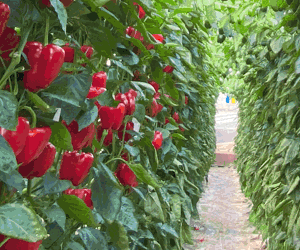Sustainability Assessment
BASF hosts its first Symposium on Sustainability Assessment in Agriculture
International experts call for common approach to sustainability assessment in food supply chain.
3/27/2013

basf_agro

Together with leading experts from the food industry, agriculture, academia and NGOs, BASF laid the foundation to bring forward solutions for sustainability assessment, an essential part of the agricultural business. Under the theme “Perspectives for Agriculture – Progress through Sustainability Assessment”, BASF hosted this international symposium on March 21 and 22 in Berlin.
“This symposium was designed to jointly increase transparency and clarity in the field of sustainability assessment. BASF’s guiding principle is ‘You can only manage what you have measured’,” says Markus Heldt, President of BASF’s Crop Protection division. “For the prosperity of agriculture, it is fundamental to manage and show progress in its sustainable development.”
BASF initiates network of opinion leaders
One of the major outcomes of the symposium was that sustainability assessment needs common principles in both the agricultural and food supply sectors, so that the assessment tools and their partners speak the same language globally.
"In spite of the recent advances, there still is a big challenge in front of us, in the journey of sustainability of the food supply chain. Every link in that chain has to understand their role and comply with it, not transferring their responsibilities upstream. We need to converge to a common concept of sustainability, agreed by the whole chain, harmonizing principles, facts, indicators, metrics, targets, actions and processes", stated Decio Luiz Gazzoni, researcher at EMBRAPA, the Brazilian Agricultural Research Corporation at the symposium.
At the close of the event, BASF issued an invitation to develop general principles for sustainability assessment in agriculture. “We will facilitate this initiative in order to promote a common framework for indicators. The discussion platform will help to increase coherence and credibility regarding the different methodologies and value chain needs”, emphasizes Dirk Voeste, Vice President Sustainability Strategy at BASF.
Biodiversity, soil and social impacts underrepresented to date
During the event, participants discussed different methods for sustainability assessment and key requirements for further developments. To achieve concrete results, a global approach combined with locally-adapted implementation is needed. Further conclusions highlighted that most of the existing methods do not yet significantly consider soil, indirect land use change and biodiversity. In addition, social impacts have to be integrated to ensure an holistic assessment.
Taking economic, environmental and social aspects into account, in 2011 BASF developed its own tool, AgBalance™. To date, the company has conducted 15 studies from Brazil to China, measuring and identifying more sustainable processes and techniques in agricultural production. With AgBalance, BASF has made one substantial contribution to global and holistic sustainability assessment in agriculture. With the symposium the next step has been taken.
"Consumers are interested in sustainability issues. We know this from our work with over 8,000 customers in the UK as part of our ongoing dialogue”, summarized Chris Brown, Director Sustainable Business at the British supermarket chain ASDA and a participant of the symposium. “At ASDA we recognize our responsibilities in helping both our customers and growers to develop solutions. The symposium was important in fostering partnerships to support this process."
The Symposium on Sustainable Agriculture was hosted by BASF’s Agricultural Solutions segment, consisting of both Crop Protection and Plant Science. With both units, BASF provides innovative solutions for agriculture: crop protection, functional crop care, turf and ornamental plants, pest control, public health as well as plant biotechnology.
Fruit, Vegetables, Citrus, Olive growing, Gardening, Herbs & Cereals, Aromatic plants, Grape-growing, Forestry news